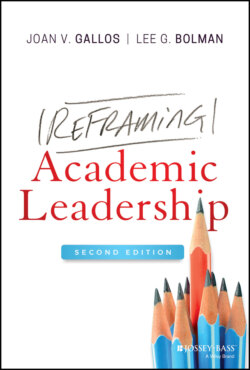Читать книгу Reframing Academic Leadership - Lee G. Bolman - Страница 32
Learning and Effective Action: Habits of Learning for Daily Practice
ОглавлениеThe larger lesson from Sarah's meeting with George is not that a particular meeting didn't go very well. We are all imperfect humans, and academic administrators work in a complex and challenging environment: it's inevitable we'll get some things wrong. If we recognize and learn from those mistakes, things should work out better over the long run. But Sarah didn't learn, and the same is often true for other leaders. Why might that be so?
Learning about ourselves and our effectiveness can seem deceptively simple: we act, assess the results, and decide what to do next. When the link between act and outcome is easy to see, we learn quickly. Most of us learned to ride a bicycle – a set of skills too complex and subtle to be rendered in simple English – because the feedback was immediate, consistent, and clear. Some things work, others don't – and we learned to distinguish which was which. Decades later one of the authors still has vivid memories of rolling downhill and crashing painfully into a wooden barrier before fully mastering the intricacies of the coaster brake. He still bikes, but only made that mistake once.
Learning is harder in interpersonal transactions because they are complex and fast‐changing, feedback from others is elusive and ambiguous, and the same behaviors that work in one situation may fail in another. In her meeting with George, Sarah knew he wasn't responding as she would have preferred, but she had to infer her impact from George's comments, which were anything but direct. It was easier to conclude that George was annoying than to see how she might be fostering the very thing she hoped to avoid. George offered little help.
Interpersonal learning is also difficult because egos and defenses get in the way. Chris Argyris reminds us that in threatening or emotionally awkward encounters we automatically seek to protect ourselves against vulnerability, embarrassment, or the appearance of incompetence (Argyris, 1990, 1994). The result is a recipe for how not to learn about something we need to understand: how our choices and actions fail us. In the complex world of higher education today, such blindness is potentially fatal. Leadership lies in the eyes of the beholder – and if academic leaders don't know how their constituents see them, they're in trouble. They need information to recognize when they are off course, as well as strategies for improving their ability to learn from experience. Both enable them to bring more confidence and authenticity to their leadership. We suggest four learning routines that academic leaders can build into daily practice.
